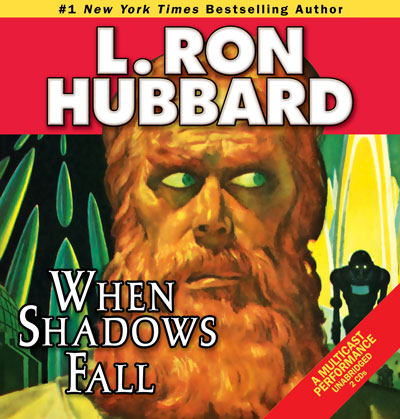King of the Gunmen Glossary
Stories from the Golden Age reflect the words and expressions used in the 1930s and 1940s, adding unique flavor and authenticity to the tales. While a character’s speech may often reflect regional origins, it also can convey attitudes common in the day. So that readers can better grasp such cultural and historical terms, uncommon words or expressions of the era, the following glossary has been provided.
alkali: a powdery white mineral that salts the ground in many low places in the West. It whitens the ground where water has risen to the surface and gone back down.
ambuscaderos: officers of the law who ambush people. This is a coined word from ambush and buscadero, a word meaning a tough, gun-packing officer of the law.
batwings: long chaps (leather leggings the cowboy wears to protect his legs) with big flaps of leather. They usually fasten with rings and snaps.
Bird Cage Opera House: a combination saloon, gambling hall and brothel. The name was a fancy way in the 1880s of describing such a place.
blamed: confounded.
boomtown: a community that experiences sudden and rapid population and economic growth, normally attributed to the nearby discovery of gold, silver or oil. The gold rush of the American Southwest is the most famous example, as towns would seemingly sprout up from the desert around what was thought to be valuable gold mining country.
Boot Hill: a cemetery in a settlement on the US frontier, especially one for gunfighters killed in action. It was given its name because most of its early occupants died with their boots on.
box: the stagecoach driver’s seat.
bulldog: to throw a calf or steer by seizing the horns and twisting its neck until the animal loses its balance and falls.
cantle: the raised back part of a saddle for a horse.
caterwauling: making a harsh, disagreeable noise that sounds like the cry of cats.
chinkies: chinks; short leather chaps (leggings), usually fringed and stopping just below the knee, worn over the pants for protection.
clapboard: a type of siding covering the outer walls of buildings in which one edge of each long thin board is thicker than the other. The thick edge of each board overlaps the thin edge of the board below it.
Colt: a single-action, six-shot cylinder revolver, most commonly available in .45- or .44-caliber versions. It was first manufactured in 1873 for the Army by the Colt Firearms Company, the armory founded by American inventor Samuel Colt (1814–1862) who revolutionized the firearms industry with the invention of the revolver. The Colt, also known as the Peacemaker, was also made available to civilians. As a reliable, inexpensive and popular handgun among cowboys, it became known as the “cowboy’s gun” and a symbol of the Old West.
concha: a disk, traditionally of hammered silver and resembling a shell or flower, used as a decoration piece on belts, harnesses, etc.
cordon sanitaire: (French) a barrier designed to prevent undesirable conditions from spreading.
cottonwood: hanging tree; the trademark tree of the West, growing along the banks of rivers and creeks, which was commonly used for lynchings. A man lynched from the limb of a tree was referred to as a cottonwood blossom.
coulee: a deep ravine or gulch, usually dry, that has been formed by running water.
cow town: a town at the end of the trail from which cattle were shipped; later applied to towns in the cattle country that depended upon the cowman and his trade for their existence.
coyote: used for a man who has the sneaking and skulking characteristics of a coyote.
dernier ressort: (French) last resort.
devils of the air: spirits who hover around the earth.
Dieu défend le droit: (French) God defends the right.
doggone: damned.
faro: a gambling game played with cards and popular in the American West of the nineteenth century. In faro, the players bet on the order in which the cards will be turned over by the dealer. The cards were kept in a dealing box to keep track of the play.
foofaraw: an excessive amount of decoration or ornamentation.
forking: mounting (a horse).
G-men: government men; agents of the Federal Bureau of Investigation.
gunhawk: a wandering gunfighter.
hawg laig: hog leg; another name for the popular Colt revolver also known as the Peacemaker.
hayrick or rick: a large stack or pile of hay, straw, corn or the like, especially when thatched or covered by a tarp.
Henry: the first rifle to use a cartridge with a metallic casing rather than the undependable, self-contained powder, ball and primer of previous rifles. It was named after B. Tyler Henry, who designed the rifle and the cartridge.
hobbles: (usually attributed to horses) short lengths of rope used to fasten the legs together to prevent free motion.
Holliday, Doc: John Henry Holliday (1851–1887), an American dentist, gambler and gunfighter of the Old West frontier. He is usually remembered for his association with the famous marshal of the Arizona Territory, Wyatt Earp, whom he joined in the famous gunfight at the OK Corral against members of the Clanton gang of suspected cattle rustlers.
honi soit qui mal y pense: (French) evil to him who thinks evil of it.
iron: a handgun, especially a revolver.
John B.: Stetson.
Judge Colt: nickname for the single-action (that is, cocked by hand for each shot), six-shot Army model revolver first produced in 1873 by Colt Firearms Company, the armory founded by Samuel Colt (1814–1862). The handgun of the Old West became the instrument of both lawmaker and lawbreaker during the last twenty-five years of the nineteenth century. It soon earned various names, such as “Peacemaker,” “Equalizer,” and “Judge Colt and his jury of six.”
kingpin: the most important person in a group or undertaking.
lantern jaw: a distinctly protruding, often wide lower jaw.
lex scripta: (Latin) written law.
lex talionis: (Latin) the legal principle that prescribes retaliating in kind for crimes committed.
light out or lit out: to leave quickly; depart hurriedly.
Limited: a train line making only a limited number of stops en route. The full name for the line was often abbreviated down to simply Limited.
lobo: wolf; one who is regarded as predatory, greedy and fierce.
lode: a deposit of ore that fills a fissure in a rock, or a vein of ore deposited between layers of rock.
lynch mob: a group of people who capture and hang someone without legal arrest and trial, because they think the person has committed a crime.
macheer: a type of saddle with a mochila (Spanish for knapsack), a covering of leather that fits over the top of the saddle. Attached to the mochila were four boxes of hard leather used for transport of letters. The design allowed for easy and quick removal and placement on a fresh horse at remount stations, or if the horse were killed, the rider could strip the mochila and walk to the next station.
Masterson: William Barclay “Bat” Masterson (1853–1921), a legendary figure of the American West. He lived an adventurous life, which included stints as a buffalo hunter, US Army scout, gambler, frontier lawman, US marshal and, finally, sports editor and columnist for a New York newspaper.
mesquite: any of several small spiny trees or shrubs native to the southwestern US and Mexico, and important as plants for bees and forage for cattle.
neck-reined: guided a horse by pressure of the reins against its neck.
pegged: threw.
peón: (Spanish) a farm worker or unskilled laborer; day laborer.
prickly pear: a cactus with flattened, jointed, spiny stems and pear-shaped fruits that are edible in some species.
proddy: inclined to prod or goad to action; tending to incite.
puncher: a hired hand who tends cattle and performs other duties on horseback.
quirt: a riding whip with a short handle and a braided leather lash.
rannies: ranahans; cowboys or top ranch hands.
repeater watch: a pocket watch that chimes every one, twelve or twenty-four hours.
revenons à nos moutons: (French) let us return to our sheep.
riata: a long noosed rope used to catch animals.
Roman holiday: a violent public spectacle or disturbance in which shame, degradation or physical harm is intentionally inflicted on one person or group by another or others. It comes from the bloody gladiatorial contests staged as entertainment for the ancient Romans.
Scheherazade: the female narrator of The Arabian Nights, who during one thousand and one adventurous nights saved her life by entertaining her husband, the king, with stories.
Seco Hombre: (Spanish) dry man. Used here as the name of a saloon.
section hand: tracklayer; a workman who lays and repairs railroad tracks.
Sharps: any of several models of firearms devised by Christian Sharps and produced by the Sharps Rifle Company until 1881. The most popular Sharps were “Old Reliable,” the cavalry carbine, and the heavy-caliber, single-shot buffalo-hunting rifle. Because of its low muzzle velocity, this gun was said to “fire today, kill tomorrow.”
Sic semper tyrannis: (Latin) Thus always to tyrants.
sidewinder: rattlesnake.
Stetson: as the most popular broad-brimmed hat in the West, it became the generic name for hat. John B. Stetson was a master hat maker and founder of the company that has been making Stetsons since 1865. Not only can the Stetson stand up to a terrific amount of beating, the cowboy’s hat has more different uses than any other garment he wears. It keeps the sun out of the eyes and off the neck; it serves as an umbrella; it makes a great fan, which sometimes is needed when building a fire or shunting cattle about; the brim serves as a cup to water oneself, or as a bucket to water the horse or put out the fire.
tenpins: rounded, bottle-shaped wooden clubs used in a bowling game, which go flying when hit.
Thompson, Ben: (1842–1884) a gunman, gambler and sometime lawman of the American Old West. He was a private in the Confederate States Army during the American Civil War and subsequently fought in Mexico before being imprisoned for murder. After his release from prison, he made his name as a gunman and a gambler before being offered the job as marshal in Austin, Texas, during which time the crime rate fell dramatically.
varmints: those people who are obnoxious or make trouble.
vi et armis: (Latin) by force of arms.
vigilantes: citizens banded together in the West as vigilance committees, without legal sanction and usually in the absence of effective law enforcement, to take action against men viewed as threats to life and property. The usual pattern of vigilance committees was to grab their enemies (guilty or not), stage a sort of trial and hang them. Their other enemies were then likely to get out of town.
war sack: a cowboy’s bag for his personal possessions, plunder, cartridges, etc. Often made of canvas but sometimes just a flour or grain sack, it is usually tied behind the saddle.
whistling post: whistle stop; a small town or community.
Wild Bill Hickok: (1837–1876) a legendary figure in the American Old West. After fighting in the Union Army during the US Civil War, he became a famous Army scout and later a lawman and gunfighter.
Winchester: an early family of repeating rifles; a single-barreled rifle containing multiple rounds of ammunition. Manufactured by the Winchester Repeating Arms Company, it was widely used in the US during the latter half of the nineteenth century. The 1873 model is often called “the gun that won the West” for its immense popularity at that time, as well as its use in fictional Westerns.
wind devils: spinning columns of air that move across the landscape and pick up loose dust. They look like miniature tornados, but are not as powerful.
ye: you.











